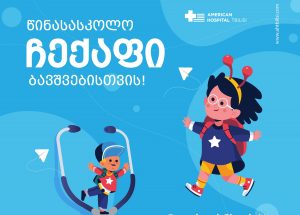The journey is accompanied by a pleasant mood, new adventures, fun and joy. Modern life is unimaginable without travel – some have a business meeting with a foreign partner, some have a visit with a booked doctor, some just travel to see the tourist attractions. It is often the case, when pregnant women also have to travel, so, certain recommendations have already been developed for them. It is advisable for expectant mothers to follow these recommendations in order to make travel as safe as possible, for themselves and for the health of the fetus. “American Hospital Tbilisi” – AHT, obstetrician-gynecologist Tatia Tskhomelidze talks about the recommendations pregnant women should follow during the flight.
If the pregnancy is physiological and proceeds without complications, the flight is safe. Of course, before the flight, it is better for the pregnant woman to consult a personal doctor, who must agree in advance about the trip by plane, and during the trip, must have a health certificate.
Tatia Tskhomelidze explains that the most dangerous and undesirable complication that may result from flying is the risk of thromboembolism. Therefore, accurate or complication prevention is essential. Preventing thromboembolism during flight, especially in low-risk pregnant women, involves two basic and simple components – to prevent dehydration and to be as active as possible.
During the flight, consider the following recommendations:
• During the flight, in order to avoid dehydration, take 1-1.5 liters of fluid, preferably plain water;
• Once every one or two hours, get up and walk into the cabin;
• If the flight lasts a long time, it is recommended to wear long-sleeved elastic socks;
• Give preference to sports clothes and comfortable shoes;
• take off your shoes during the flight;
• Avoid hard-to-digest and overly fatty foods.
Remember that during pregnancy, the fetus is well protected in your uterus and is the best “incubator” for it. The uterus, pelvis, and abdomen reliably protect the baby, but it’s better to refrain from long, tiring, and uncomfortable travel.
In many cases, during the first trimester of pregnancy, they refrain from flying, because during this time, expectant mothers feel more discomfort (they get tired easily, suffer from vomiting and frequent urination). It is best to consult with the representatives of a particular airline in advance and let them know that you are pregnant, because each company has a different and individual policy in terms of letting the pregnant woman on board.
- If a single fetus pregnancy is going on, without complications and the expectant mother is also healthy, in such a case, long-distance flying is allowed by doctors, but only up to 36 weeks!
- Keep in mind that many airlines require health certificates above 28 weeks of gestation!
- The best time to travel by plane is the second trimester of pregnancy!
- Abstain from flying in the last stages of pregnancy (34-35 weeks and above)!





